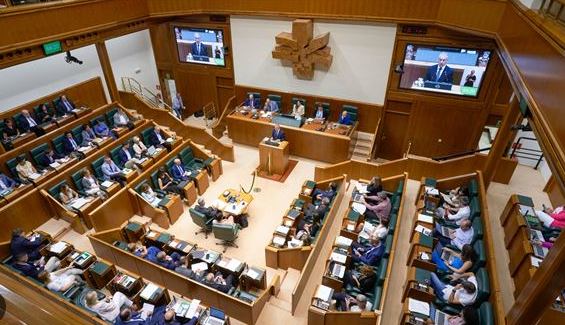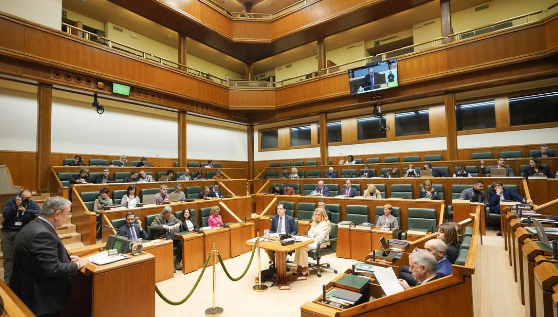
Spain: Basque Parliament Passes Sustainable Mobility Law

The Basque Parliament approved a few days ago the new Sustainable Mobility Law aimed at reinforcing the transition to a model that minimizes its environmental impact.
The legislation regulates the planning instruments for sustainable mobility and establishes the basis for the institutions to develop an audit in favor of environmentally friendly mobility.
The plenary of the Chamber gave its approval to the opinion formulated by the Commission of Territorial Planning, Housing and Transport, in relation to the draft law on sustainable mobility of the Basque Country.
In his appearance before the plenary to explain the content of the new regulation, the Minister of Territorial Planning, Housing and Transport, Iñaki Arriola, stressed that it is a law whose main objective is to reduce the carbon footprint and move towards an intermodal transport system that prioritizes people’s access to public transport.

Related content: Spain: Ambitious Mobility Plan Unveiled for Portugalete Municipality
Country Progress
Despite various reports that point out that Spain is still far behind the advances in sustainable mobility in Europe, this 2023 has cut the gap with important measures and funding.
Recently, Spain’s Ministry of Transport, Mobility and Urban Agenda (Mitma) reached an agreement with the Generalitat of Catalonia to initiate the administrative and economic processing of two of the four agreements to improve connectivity and enhance sustainable mobility.
An agreement was reached on the text of the Interchange Agreement for the execution of interchanges between the General Interest Railway Network and the regional network.
The estimated investment for these two agreements is 420 million euros, to be financed by the Ministry directly or through Adif.
The objective is to develop road and rail infrastructure and also to improve connectivity on existing roads with a view to promoting active and sustainable mobility with actions of pacification, bicycle lanes, energy efficiency, among others.





